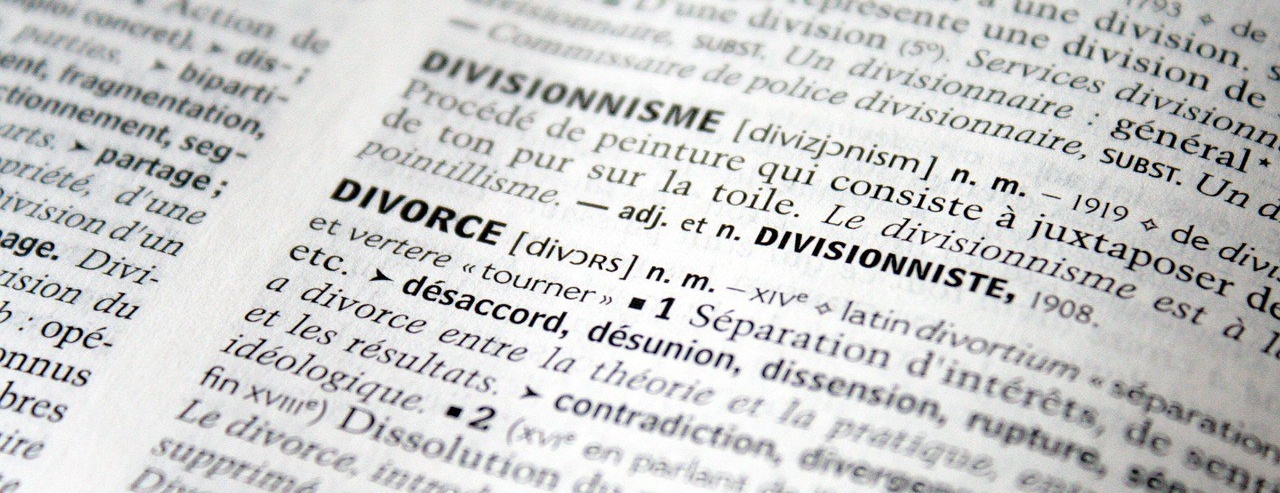What Happens to Student Loans in Divorce?
No one would say that going through a divorce was a particularly pleasant time in their lives. Along with the emotional strain, there's the logistical headache of who gets what. And while you may both be working to hold onto as many assets as possible, it's safe to assume that neither of is reaching for the marriage's debt.
So who will get stuck with the short straw? Navigating student debt liability during a divorce can be challenging, so we're sharing the answers you need most.

Are student loans considered marital debt?
First things first: knowing whether your (or your spouse's) student loans are marital debt will help you predict how they may be treated in the event of a divorce.
This one's pretty straightforward: if you took out your student loans before you entered into the marriage, they are not marital debt. You are the one and only responsible party for those monthly bills. Same with your spouse's loans.
But if you took out student loans while you were married, those loans are considered marital debt.
Are you liable for your spouse's student loans?
Even if your—or your spouse's—student loans are considered marital debt, that doesn't necessarily mean that the other party will be liable for them in the event of a divorce.
Let us explain:
As a reminder, if either of you came to the marriage with your loans, those are separate property, so there's no shared liability. But what if you and your spouse are married, and one of you decides to take out a loan to go back to school? Here's where things start to get tricky.
Divorce is handled in state court, which means that each state can make its own rules about how to allocate property—and debt—in a divorce. Fortunately, states follow pretty similar criteria, but there are two separate methods of looking at allocation: community property and equitable distribution. States follow one of these two models.
In a community property state, marital assets and debts are split 50-50 between the parties when they divorce. In an equitable distribution state, the courts review the evidence and make a determination about the most equitable way to distribute the marital property. While a 50-50 split may be easier to figure out, most states follow the equitable distribution model. That means determining liability for your spouse's student loans won't be black and white.
Courts consider a number of things when making this decision, including:
1. Whether the spouse attending school received a degree
Professional degrees are actually considered property in the eyes of the law, so if you or your spouse received a degree as the result of taking out student loans, that degree could be considered marital property depending on where you live.
If you live in a state where a degree earned during marriage is considered marital property, then any debt incurred obtaining that degree could also be considered marital debt.
2. Whether the loan money was used for tuition and supplies or living expenses
As you likely know, not all student loan money goes directly to the school. If some of the loans were used not for tuition or books, but instead to support the living expenses of both married parties, the debt is more likely to be considered shared.
3. Whether the spouses have equal earning power
In equitable distribution states, divorce courts make all of their decisions through the lens of fairness. So if one party has very little or no income—especially if they set aside their own career goals to support a spouse through their education and career aspirations—courts are less likely to assign them a significant portion of the student loan debt.
Do student loans get split in a divorce?
At the end of the day, you want to know whether you'll be responsible for your spouse's student loans—or whether they'll have to help you pay off yours. And as with so many things in life, the answer depends.
If either party came to the marriage with student loans, those loans remain that party's property—even in divorce.
However, if you or your spouse incurred student loans during your marriage, then you'll likely be relying on a judge's nuanced decision about whether—and how much—to split the loans between the two of you. A lawyer can help you look at all the factors and make informed decisions as you move through the process.
For many people, divorce creates a new and challenging financial reality. If your change in circumstances has impacted your ability to cover your bills, consider refinancing your student loans to lower your monthly payment.
